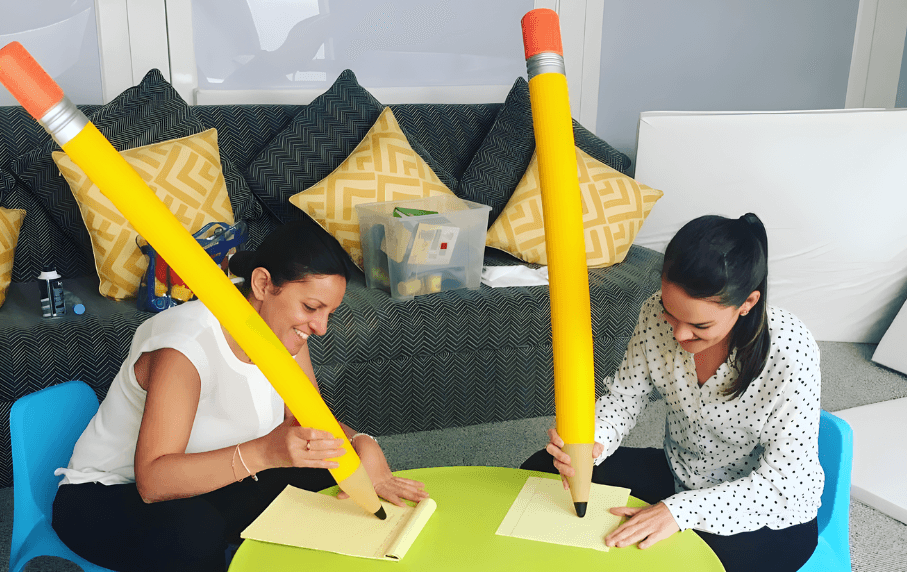
 I am often asked by parents how to manage specific behaviours exhibited by their children. My first question to these parents is always the same, “How do you behave as a parent?” This is often met with stunned silence and wide, staring eyes as they struggle to understand the need for positive role modelling.
I am often asked by parents how to manage specific behaviours exhibited by their children. My first question to these parents is always the same, “How do you behave as a parent?” This is often met with stunned silence and wide, staring eyes as they struggle to understand the need for positive role modelling.
Children need their parents or guardians to be good models; role models for acceptable behaviour. That means you have to practice good listening to teach good listening, use manners to teach manners, and practice self-control to teach patience.
If you argue, shout at others, and call people names, your child will learn that they can be rude. If you regularly get angry with your children, your child will learn that they can be angry with you, their siblings, and their peers. If you have emotional outbursts, your child will learn that it is acceptable to have temper tantrums. If you fight with your partner or spouse, you will teach your child that this is how to have an “adult” relationship.
I remember once seeing a mother screaming at her 3-year-old in a play-ground. The little girl had been playing well on her own. She didn’t want to leave the play area, but her mother was ready to go home. The mother screamed at her, threw her arms about, and made all sorts of angry facial expressions.
The little girl was standing at the top of the slide giggling and, much to her mother’s dismay said, “Do it again mummy, that’s funny.”
As far as the little girl was concerned, her mother’s performance was like watching a private show, far more exciting than watching any movie on her iPad. This was live, real, and just for her.
The child was unable to process, or perhaps hear, the words uttered by her mother as they were not within her linguistic abilities. All she could see was her mother making various facial expressions and waving her arms about, understanding the odd intelligible word. Without a doubt, she would want such performance to be repeated; who doesn’t want to be entertained?
What did the girl learn from this experience? Well, in the future, in similar situations, she will either laugh or ignore her mother and not listen. She has also learnt that, if you want someone to listen to you, you have to scream, make various hand gestures, and make silly faces.
Extreme behaviour will not work. Instead, try to appreciate your child’s point of view. Focus on your child’s positive behaviours by praising them specifically and sincerely for what they have done well. For example, “I really like the way you are sitting eating on your own.” This will help your child develop positive behaviours and self-esteem.
Correct misbehaviours by redirecting your child to positive alternative behaviours; always telling them what you want them to do and not what you don’t want them to do.
If the child is standing on a table, say, “Get down from the table.” Do not say, “Don’t stand on the table.”
Try to avoid using the word “no.” Stay calm when your child is testing you and recognize what they are really trying to communicate to you.
Here is another example of a parent missing the signals her child was sending.
I recently did a home visit to help a mother with bath-time for her 3-year-old Autistic daughter. Her mother had complained that she has tantrums throughout her bath time. The little girl readily and happily played in the bath, but when her mother shampooed her hair, the little girl screamed and cried.
What her mother hadn’t realized was that she didn’t like having the soap on her eyes, although it was baby shampoo. The sensation of her eyes being closed was frightening for her. When we realized this and kept the soap away from her eyes, the little girl was more than willing to have her hair washed and thoroughly enjoyed her bath-time.
Her mother had been so focused on the tantrum, and on telling the girl not to cry, that she hadn’t recognized what the little girl was actually trying to communicate.
Are you missing the signals your child is sending through their behaviour? Are you struggling with effective role modelling? My 10-week Parent-Child Interaction Coaching will be valuable to any parent or guardian who is struggling to improve their parenting skills.